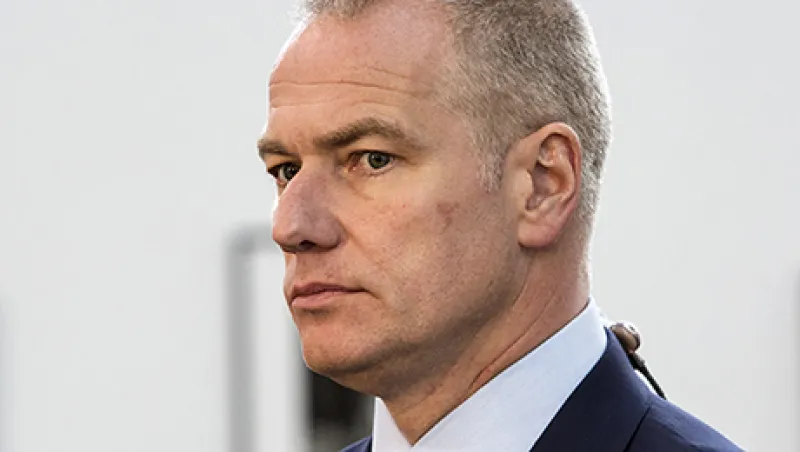While Deutsche Börse’s rivals spend the coming weeks trying to break up its planned merger with the London Stock Exchange, the man who has won the contest to lead the combined entity will have his eyes on a different prize. Carsten Kengeter, CEO of the German exchange, plans to join Switzerland’s extreme skiing challenge, the Patrouille des Glaciers, a five-day, 33-mile race from Zermatt to Verbier beginning April 19.
It’s a typically rugged pursuit for Kengeter, 48, who likes winning. Within a month of succeeding Reto Francioni as head of Deutsche Börse last June, the German-born former UBS investment banker beat U.S. commodities and currency exchange operator CME Group to acquire Frankfurt-based foreign exchange trading platform 360 Treasury Systems (360T) for €725 million ($796 million). Kengeter, who wanted his exchange to be a leading global marketplace for multiple asset classes, saw 360T as the best way to get there. But he soon set his sights on bigger prey: On March 16, Deutsche Börse unveiled a $30 billion tie-up with the LSE that aims to create a pan-European exchanges powerhouse that would be the world’s biggest exchange operator by revenue and the second largest by market value.
“It brings together two of the most respected and successful market infrastructure providers in the world to lead the way in European capital markets and set the benchmark for further growth and best-in-class services,” Kengeter said in a statement.
However, U.S. predators are lurking, with Atlanta-headquartered Intercontinental Exchange saying it’s considering an offer for LSE; there’s also talk that Chicago-based CME Group and Hong Kong Exchanges and Clearing could enter the fray and spark a global bidding war.
The LSE and Deutsche Börse have tried to merge twice before, but both attempts ended in acrimony. Kengeter, who will become CEO of the enlarged operation if the deal wins shareholder and regulatory approval, is determined that it succeed the third time around. “Francioni just held the ship steady, but Carsten said he would be active, and he’s been true to his word,” says one former colleague from his UBS days. “His trading background means he has an unrivaled knowledge of the market and he knows the world of exchanges inside out.”
Kengeter started out in the credit derivatives trading department of investment bank Barclays de Zoete Wedd in London in 1992, after earning a master’s in finance and accounting at the London School of Economics. Five years later he joined Goldman Sachs Group; he was promoted to partner while in his mid-30s, making him one of the youngest bankers to join its elite. While at Goldman he spent four years in Hong Kong, where he developed a strong interest in yoga and neigong, a Chinese form of meditation whose practitioners claim that it promotes internal strength.
That would have been ideal preparation for Kengeter’s next role: In 2008 he became co-head of UBS’s global fixed-income commodities and currencies division, which racked up $43 billion in write-downs during the global financial crisis. Credited with sorting out the Swiss bank’s toxic mortgage portfolio, he swiftly rose to co-head of investment banking, but controversy dogged his tenure.
Kengeter led the investment bank when employee Kweku Adoboli piled up rogue trading losses of $2.3 billion in 2011. Britain’s Serious Fraud Office had Kengeter’s name on a list as part of its investigations into the rigging of Libor, which led to the conviction of former UBS trader Thomas Hayes last year. Kengeter stepped down from the bank’s management board in 2012 to run UBS’s noncore operations, which housed much of its former bond-trading business.
Never accused of any wrongdoing, he left the bank in 2013 and returned to the London School of Economics, where as a visiting finance professor he oversaw a research project on the unintended consequences of regulatory intervention in financial markets. “He’s a straight talker and a good, strong manager,” says his ex-colleague. “Being German is a very big factor in his favor at Deutsche Börse, but he’s also got an international perspective.”
If the LSE deal closes, Kengeter, who lives in West London with his medic wife and their three teenage children, can look forward to a new challenge: proving that he’s a committed Anglophile.






